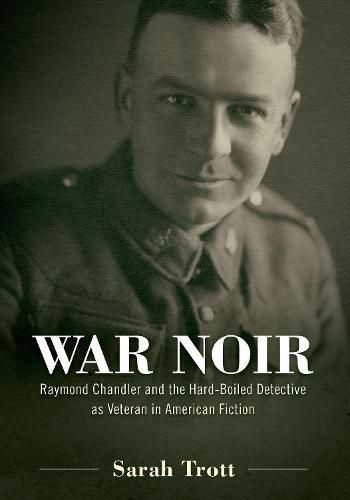Readings Newsletter
Become a Readings Member to make your shopping experience even easier.
Sign in or sign up for free!
You’re not far away from qualifying for FREE standard shipping within Australia
You’ve qualified for FREE standard shipping within Australia
The cart is loading…






This title is printed to order. This book may have been self-published. If so, we cannot guarantee the quality of the content. In the main most books will have gone through the editing process however some may not. We therefore suggest that you be aware of this before ordering this book. If in doubt check either the author or publisher’s details as we are unable to accept any returns unless they are faulty. Please contact us if you have any questions.
The conflation of the hard-boiled style and war experience has influenced many contemporary crime writers, particularly in the traumatic aftermath of the Vietnam War. Yet, earlier writers in the genre, such as Raymond Chandler, remain overlooked when it comes to examining how their war experience affected their writing. Sarah Trott corrects this oversight by examining Chandler alongside the World War I writers of the Lost Generation as well as highlighting a melding of very different styles in Chandler’s work.
Based on Chandler’s experience in combat, Trott explains that the writer created detective Philip Marlowe not as the idealization of heroic individualism, as is commonly perceived, but instead as an authentic individual subjected to very real psychological frailties from trauma during the First World War. Inspecting Chandler’s work and correspondence indicates that the characterization of the fictional Marlowe goes beyond the traditional chivalric readings and can instead be interpreted as a genuine representation of a traumatized veteran in American society. Substituting the horror of the trenches for the corruption of the city, Chandler formed a disillusioned protagonist in an uncaring America. Chandler did so with the sophistication necessary to straddle genre fiction and canonical literature.
The sum of this work offers a new understanding of how Chandler uses his war trauma, how that experience established the traditional archetype of detective fiction, and how this reading of his fiction enables Chandler to transcend generic limitations and be recognized as a key twentieth-century literary figure.
$9.00 standard shipping within Australia
FREE standard shipping within Australia for orders over $100.00
Express & International shipping calculated at checkout
This title is printed to order. This book may have been self-published. If so, we cannot guarantee the quality of the content. In the main most books will have gone through the editing process however some may not. We therefore suggest that you be aware of this before ordering this book. If in doubt check either the author or publisher’s details as we are unable to accept any returns unless they are faulty. Please contact us if you have any questions.
The conflation of the hard-boiled style and war experience has influenced many contemporary crime writers, particularly in the traumatic aftermath of the Vietnam War. Yet, earlier writers in the genre, such as Raymond Chandler, remain overlooked when it comes to examining how their war experience affected their writing. Sarah Trott corrects this oversight by examining Chandler alongside the World War I writers of the Lost Generation as well as highlighting a melding of very different styles in Chandler’s work.
Based on Chandler’s experience in combat, Trott explains that the writer created detective Philip Marlowe not as the idealization of heroic individualism, as is commonly perceived, but instead as an authentic individual subjected to very real psychological frailties from trauma during the First World War. Inspecting Chandler’s work and correspondence indicates that the characterization of the fictional Marlowe goes beyond the traditional chivalric readings and can instead be interpreted as a genuine representation of a traumatized veteran in American society. Substituting the horror of the trenches for the corruption of the city, Chandler formed a disillusioned protagonist in an uncaring America. Chandler did so with the sophistication necessary to straddle genre fiction and canonical literature.
The sum of this work offers a new understanding of how Chandler uses his war trauma, how that experience established the traditional archetype of detective fiction, and how this reading of his fiction enables Chandler to transcend generic limitations and be recognized as a key twentieth-century literary figure.